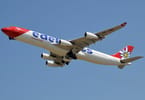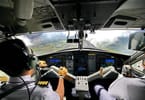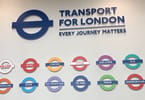Airline industry experts say Delta Air Lines is playing “hardball” in negotiations with officials of Hartsfield-Jackson International Airport by threatening to reroute some of its traffic to its other hub airports.
But the airline is unlikely to follow through with its effort to pressure the Atlanta airport to shrink or slow down its costly, long-term construction plans, these people said. While Delta might shift a small amount of traffic to a lower-cost airport such as Memphis, they said, the Atlanta-based airline would be reluctant to retreat from the attractive Atlanta market, where it has spent decades building Hartsfield-Jackson into the world’s busiest airport.
Colorado-based airport consultant Mike Boyd said the current Delta-airport squabble in Atlanta shouldn’t be taken too seriously, despite recent headlines and confrontational rhetoric.
“They’re playing hardball,” Boyd said. “I wouldn’t put too much into this. They will come to a mutually beneficial agreement. They won’t pull too many, if any, flights out [of Atlanta].”
Airlines are desperate to economize after ending a dismal year with steep losses. Carriers were first socked in 2008 with record fuel costs. Then the recession sent traffic plunging even as their fuel costs improved. Delta is expected to report a fourth-quarter loss this week after American said last week that it lost $340 million and United lost $1.3 billion.
Still, moves by Delta to partially dismantle its so-called fortress hub in Atlanta would be an about-face from its strategy in recent years and could lead to extra costs and lost revenue, some observers said.
Delta recently suggested it may risk that outcome if the Atlanta airport’s per-passenger costs jump as much as 70 percent in coming years, as it fears. In a letter this month to the airport’s general manager, Ben DeCosta, a Delta executive said rising costs “would make it unlikely that we could continue to grow and invest profitably at Hartsfield-Jackson.”
Noting that up to two-thirds of its Atlanta traffic could theoretically be re-routed through other hubs, Delta added that “the loss of connecting traffic … could jeopardize billions of dollars in annual economic benefits.” The airport injects an estimated $23 billion a year into the region’s economy.
DeCosta declined to comment for this article.
Delta fired the salvo during negotiations with the Atlanta airport to replace a 30-year master lease that expires next year. The lease talks, which affect Delta, AirTran Airways and other airlines, recently became a public squabble when the airlines disagreed with the long-term costs of planned or potential construction projects in coming decades.
At the Atlanta airport, carriers are unhappy that a yet-to-be-built international terminal is three years behind schedule and projected to cost as much as $1.6 billion —- nearly double its original estimate. The two sides may be getting closer to a compromise —- their latest proposals to trim the project are within $100 million of each other.
Meanwhile, the carriers disagree with the airport about billions of dollars worth of longer-term construction plans. They want to slow plans to erect an additional terminal building, and they want it moved from a site where they hope a sixth runway could eventually be built.
Delta, which has taken the lead in the airlines’ negotiations with the Atlanta airport, recently warned that those projects would boost the costs per passenger enplanement —- or each passenger boarding at the airport —- from $9.41 currently to as much as $16 by 2016.
“We want Atlanta to grow. We want Hartsfield to continue to be the economic engine,” Delta spokesman Kent Landers said. But the proposed construction schedule “would make [the airport] uncompetitive against other airports,” he said.
He said airline travel is slowing because of the recession, and Delta and other carriers want the airport to stretch out its current development plans to around 2030 to spread out costs.
Currently, about 65 percent of Delta’s traffic at the Atlanta airport involves passengers transferring from one flight to another. The carrier, which merged with Northwest Airlines last year, says about 40 percent of that traffic could flow through another airport, such as the former Northwest hub in Memphis, without increasing flight distances.
The Memphis airport’s per-passenger costs, at $5.91 per enplanement, are almost 40 percent lower than Atlanta’s current expense, according to Delta. Richard Anderson, Delta’s CEO, is scheduled to meet with Memphis airport officials next month.
Calyon Securities analyst Ray Neidl said Delta needs to focus on cutting expenses.
“We’re playing in a new environment right now,” he said. With Delta under “new management” since its merger last year with Northwest Airlines, he said the airline could shift a significant number of flights.
But other experts say Delta’s airport cost comparisons ignore key factors that drove the company’s focus on Atlanta in recent years. The carrier recently beefed up its international route network to capitalize on Atlanta’s large local passenger market, heavy concentration of business travelers and the airline’s extensive domestic route network feeding traffic into the hub.
Airport consultant Jerry FitzGerald said Memphis, by comparison, is a smaller passenger market, and its airport probably doesn’t have the capacity to absorb many flights, despite its lower costs. Memphis officials, however, say the airport can easily double its 11 million passengers a year.
“Airlines don’t go where the cheapest airport is. They go to where the passenger demand is,” said FitzGerald, former aviation director of the agency that runs metro New York’s three major airports. He and Hartsfield manager DeCosta worked together at New York’s airport authority in the 1990s.
Costs are “very high” at metro New York’s LaGuardia, John F. Kennedy and Newark airports, but “I don’t see anyone leaving the market,” FitzGerald said.
Similarly, Atlanta-based Delta wouldn’t be eager to start dismantling its biggest hub at the world’s busiest airport, he said. They’re “negotiating … in the press,” he said. “I’ve seen arguments like this my whole career.”
The Atlanta hub “is so critical to the way Delta operates,” added David Stempler, president of the Air Travelers Association. “I don’t think [shifting flights] is something that they want to do.”
He said Delta could make a small-scale move to rattle local community leaders and push airport officials at the negotiating table.
Still, he said airport planners need to be careful to listen to airlines’ concerns about keeping a lid on costs, which could ultimately be harmful if they get out of hand.
“Any costs that Delta pays will have to be passed on to passengers,” he said.
Robert Mann, an airline consultant in Port Washington, N.Y., said the public dispute is a sign that the two sides deeply disagree about what facilities the public is willing to pay for.
“I understand what [Delta is] doing. Sometimes you end up spending for the Taj Mahal when all you really want is a Quonset hut,” he said. But “it’s a tough threat to make good on,” he added. Delta probably would have to switch to different-sized planes on some reshuffled routes and give up some revenue, he said. “They would lose some of the productivity of a so-called fortress hub” in Atlanta.
More likely, the airport and the airlines will settle their differences, he added. They will agree to “trim the fluff out” or cut costs some other way, he said.
Staff writer Kelly Yamanouchi contributed to this article.
COSTS AT HUB AIRPORTS
Delta estimates that costs at Hartsfield-Jackson —- including leases on terminal space, management fees and some passenger charges —- could rise to $16 for each passenger boarded in 2016. At other airports, costs also are likely to rise.
Here are the 2008 charges, according to Delta:
Airport ……….Cost per passenger
Denver ………………….$16.65
Chicago O’Hare …………..$13.09
Houston Intercontinental ….$11.98
Dallas-Fort Worth…………$10.35
*Atlanta Hartsfield-Jackson ..$9.41
*Minneapolis-St. Paul ……..$9.10
*Detroit………………….$9.10
*Cincinnati ………………$8.89
Phoenix ………………….$8.82
Charlotte ………………..$7.19
*Salt Lake City …………..$6.94
*Memphis………………….$5.91
*Major Delta connecting hubs
Source: Delta Air Lines
WHAT TO TAKE AWAY FROM THIS ARTICLE:
- While Delta might shift a small amount of traffic to a lower-cost airport such as Memphis, they said, the Atlanta-based airline would be reluctant to retreat from the attractive Atlanta market, where it has spent decades building Hartsfield-Jackson into the world's busiest airport.
- Delta, which has taken the lead in the airlines' negotiations with the Atlanta airport, recently warned that those projects would boost the costs per passenger enplanement —- or each passenger boarding at the airport —- from $9.
- He said airline travel is slowing because of the recession, and Delta and other carriers want the airport to stretch out its current development plans to around 2030 to spread out costs.





















